Portuguese India was the aggregate of Portugal's colonial holdings in India. At the time of British India's independence in 1947, Portuguese India included a number of enclaves on India's western coast, including Goa proper, as well as the coastal enclaves of Daman (Port: Damão) and Diu, and the enclaves of Dadra and Nagar Haveli, which lie inland from Daman. The territories of Portuguese India were sometimes referred to collectively as Goa.
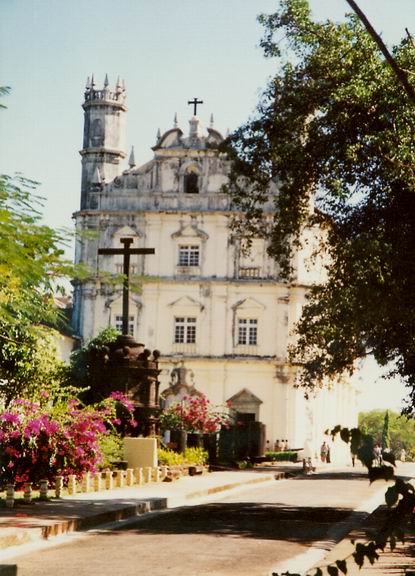
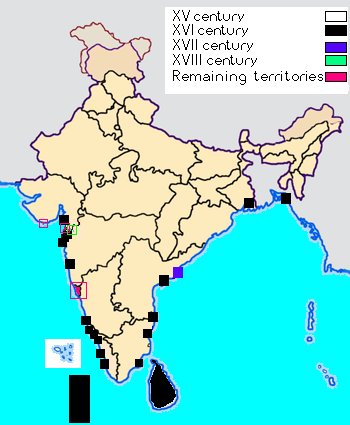
The first Portuguese encounter with India was on May 20, 1498 when Vasco da Gama landed in Calicut (present-day Kozhikode). Over the objections of Arab merchants, Gama secured an ambiguous letter of concession for trading rights from the Zamorin, Calicut's local ruler, but had to sail off without warning after the Zamorin insisted on his leaving behind all his goods as collateral. Gama kept his goods, but left behind a few Portuguese with orders to start a trading post.
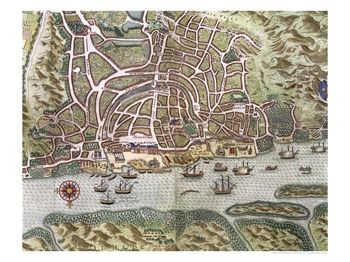
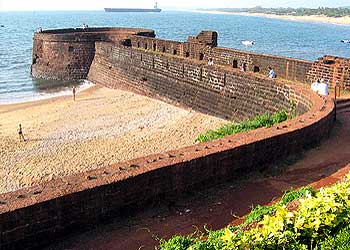
In 1510, Portuguese admiral Afonso de Albuquerque defeated the Bijapur sultans on behalf of a local sovereign, Timayya, leading to the establishment of a permanent settlement in Velha Goa (or Old Goa). The Southern Province, also known simply as Goa, was the headquarters of Portuguese India, and seat of the Portuguese viceroy who governed the Portuguese possessions in Asia.
The Portuguese acquired several territories from the Sultans of Gujarat: Daman (occupied 1531, formally ceded 1539); Salsette, Bombay, and Baçaim (occupied 1534); and Diu (ceded 1535). These possessions became the Northern Province of Portuguese India, which extended almost 100 km along the coast from Daman to Chaul, and in places 30–50 km inland.
The province was ruled from the fortress-town of Baçaim. Bombay (present day Mumbai) was given to Britain in 1661 as part of the Portuguese Princess Catherine of Braganza's dowry to Charles II of England. Most of the Northern Province was lost to the Marathas in 1739, and Portugal acquired Dadra and Nagar Haveli in 1779.
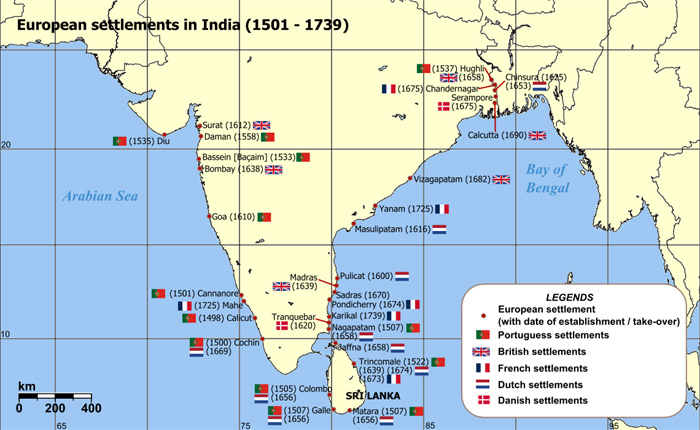
After India's independence from the British in 1947, Portugal refused to accede to India's request to relinquish control of its Indian possessions. The decision given by the International Court of Justice at The Hague, regarding access to Dadra and Nagar Haveli, after it was invaded by Indian citizens, was an impasse[1].
From 1954, peaceful Satyagrahis attempts from outside Goa at forcing the Portuguese to leave Goa were brutally suppressed.[2] Many revolts were quelled by the use of force and leaders eliminated or jailed. As a result, India closed its consulate (which had operated in Panjim since 1947) and imposed an economic embargo against the territories of Portuguese Goa. The Indian Government adopted a "wait and watch" attitude from 1955 to 1961 with numerous representations to the Portuguese Salazar regime and attempts to highlight the issue before the international community.[3] Eventually, in December 1961, India militarily invaded Goa, Daman and Diu, where they were faced with insufficient Portuguese resistance.[4][5] Portuguese armed forces had been instructed to either defeat the invaders or die, and though a cease-fire was decreed, an official truce was never signed. [6] Only meager resistance was offered due to the Portuguese army's poor firepower and size (only 3,300 men), against a fully-armed Indian force of over 30,000 with full Air and Naval support.[7] [8]. The territories were annexed to India on 19 December 1961.
The Salazar regime in Portugal refused to recognize Indian sovereignty over Goa, Daman and Diu, which continued to be represented in Portugal's National Assembly until 1974. Following the Carnation Revolution that year, the new government in Lisbon restored diplomatic relations with India, and recognized Indian sovereignty over Goa, Daman and Diu. However, due to the military takeover, and since the wishes of the people of Portuguese India were never taken into consideration (as required by UN Resolution 1514 (XV) of 1960 on "the right to self-determination" [9] -- see also UN Resolutions 1541 and 1542 [10]), the people continue to have the right to Portuguese citizenship. However, since 2006, this has been restricted to those born during Portuguese rule.
 ශිල්ප 64
ශිල්ප 64